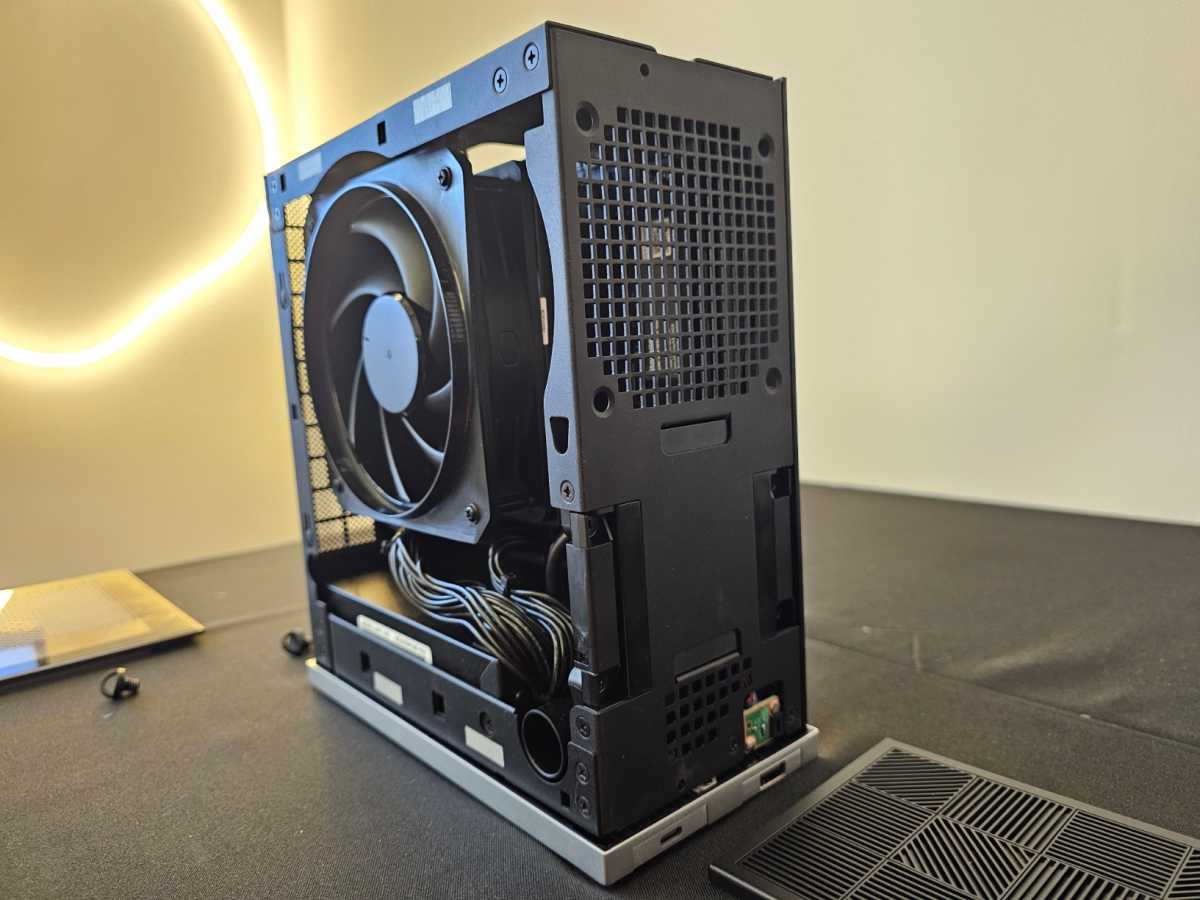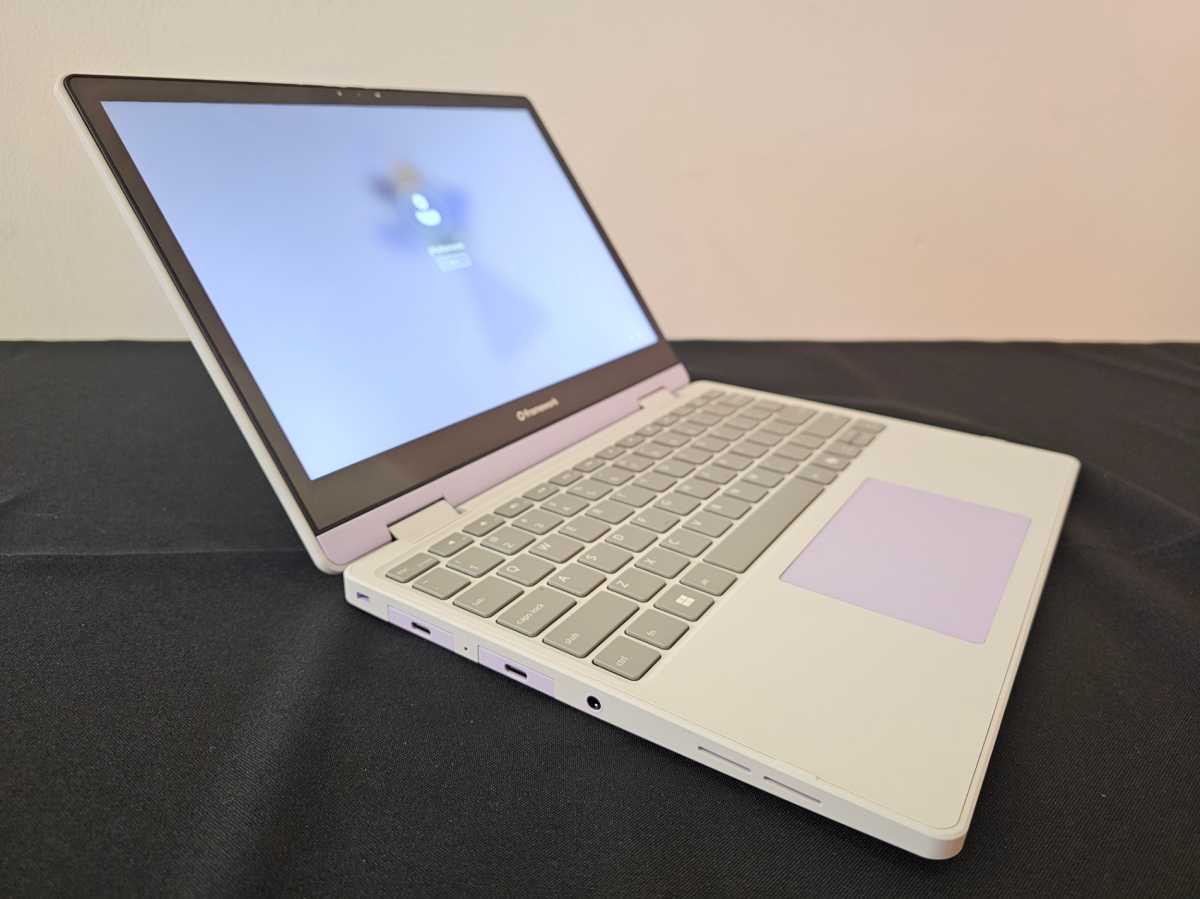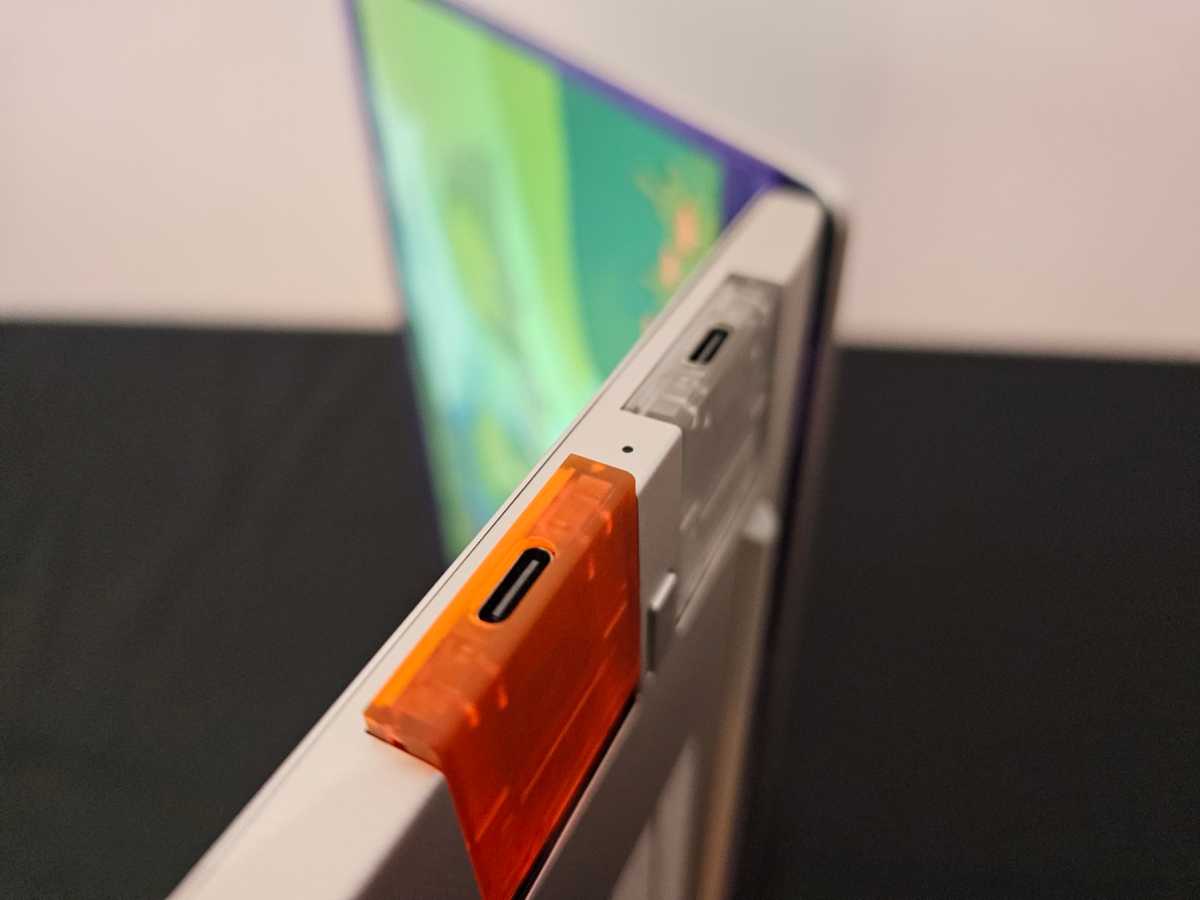Hands-on with the Framework Desktop and Laptop 12
Framework’s modular, upgradeable laptops have made it a darling of PC fans, making some of the best elements of desktops portable. So, why would Framework design a desktop PC? To find out, PCWorld’s Mark Hachman went to the company’s reveal event in San Francisco, where he got his hands all over the new Framework Desktop and the new 2-in-1 Laptop 12.
The Framework Desktop looks a lot like one of those mini PCs that are gaining in popularity, which use laptop processors and some upgradeable parts to stay tiny. Framework’s boxy design is indeed using laptop parts, but at 4.5 liters in volume it’s also pretty big in that space. Here’s why: It’s packing an incredibly powerful Ryzen AI system, based on AMD’s Strix Halo architecture revealed at CES. This is the kind of hardware that typically goes into “workstation” class laptops and which we’ve also seen in a mini PC design from HP.
Framework DesktopFramework’s desktop distinguishes itself by sticking to the company’s upgradeable guns. The AI Max mainboard is all on a standard Mini-ITX-sized motherboard with ATX power headers, so you can pull it out and stick in a regular desktop if you want. (I suppose you could also use this tiny case to build a brand new Mini-ITX system, too — I wonder if Framework will sell the case on its own?) Even the cooling is standardized, a single 120mm fan with alternatives available from Cooler Master and Noctua.
The case itself has a lot going for it. On the front you get a modular panel with a patchwork of squares that can be swapped out for different decorative tiles, above two of Framework’s swappable ports as seen on the Laptop 13. These can be hot-swapped for any port you like, including USB-C, USB-A, SD card reader, HDMI, et cetera. The rest of the case looks like a tiny, shrunken-down ATX enclosure, with thumbscrews releasing magnetically attached side panels in metal or glass. You can even put a top handle on this thing for a “LAN party box” feel.
Speaking of gaming, Framework was quick to extoll the AI Max’s gaming potential, since it’s AI-focused architecture shares a huge pool of memory between the CPU and integrated GPU. It’s basically an APU on steroids. With AMD’s FSR upscaling tech enabled they claimed 80 frames per second on Horizon Zero Dawn Remastered, 198 DPS for Black Ops 6, and 215 for Cyberpunk.
That’s at 1080p on high settings, though, so this thing isn’t going to compete with a full gaming desktop or laptop any time soon. And no, that little case can’t fit a discrete GPU of any size. You might be able to use an external GPU setup, but at that point you’re losing the entire point of a tiny desktop PC.
You’ve got plenty of storage options with full-sized 2280 M.2 drives at PCIe Gen4, maxing out at 16 terabytes. But RAM might be a disappointment for some. Because of the highly integrated memory of the Ryzen AI Max design, it has to be soldered to the mainboard — no upgradeable memory like Framework’s laptops.

Mark Hachman / Foundry
But you do get plenty of options. The $1,100 base model with a Max 386 8-core processor comes with 32GB of DDR5 memory, while the top-end 16-core Max+ 395 has a whopping 128GB. If you want more than one — say, for building your own pint-sized AI datacenter — you can remove the mainboard, install them on a rack, and run them in parallel. You can get your hands on them starting in the third quarter of 2025, but the first batches are already sold out.
Framework Laptop 12The second new design the company showed off was the Laptop 12. This is the third full laptop design for Framework, and it’s aimed squarely at the budget market, offering an upgradeable alternative to the cheap “craptops” that are often aimed at kids, students, and anyone who just can’t drop four figures on a computer. It’s a 12-inch design with a 2-in-1 form factor and touchscreen with stylus support, the company’s first.

Mark Hachman / Foundry
The Laptop 12 looks distinctive, sort of a mix of the company’s low-branding Laptop 13 and a typical budget Chromebook. The exterior is a mix of chunky ABS plastic and TPU, that spongy sort of plastic you often see on protective phone cases. The later is colored in six different options, giving it a bright and playful look. The design is definitely chunky for a smaller laptop, but aesthetically it all works.
And yes, it’s upgradeable. The Laptop 12 is launching with Intel 13th-gen Intel processors, now over two years old, but again this is a budget design. Just like the bigger laptops you can remove the keyboard to get access to the guts, with upgradeable RAM, storage, and battery. It also has the same four swappable ports (two on each side) as the Laptop 13.

Mark Hachman / Foundry
There’s one big question left for the funky-looking little laptop: How much will it cost? If Framework is taking aim at what it considers to be the failings of more affordable laptops, then the price point will be crucial to whether it can accomplish its goals. We’ll find out in April when pre-orders open, with delivery estimated for “mid-year.”
Framework Laptop 13 updatesThe Framework laptop 13 is mostly unchanged from the existing design — that’s the point of easy upgrades, after all. But there are a few notable new options for the company’s bread-and-butter, starting with new Ryzen AI 300-series motherboards. These will still have the usual upgradeable RAM and storage options, with a refreshed cooling system featuring a 10mm cooling pipe.
I’m more excited about the new cosmetic options, which include throwback transparent plastic bezels in orange and purple for the screen bezel and expansion ports. (Framework even called it “atomic purple,” Nintendo’s name for it in the N64 and Game Boy Color era.) The keyboard gets an upgrade too, with an optimized layout that can come with a Copilot+ key (applause) and an unbranded, non-Microsoft key (bigger applause).
The refreshed Laptop 13 is up for pre-order now starting at $900 for build-it-yourself options. The previous model with Ryzen 7000-series laptop processors is on sale starting at $750. For more on the latest in PC news, be sure to subscribe to PCWorld on YouTube, and check out our weekly podcast The Full Nerd.
